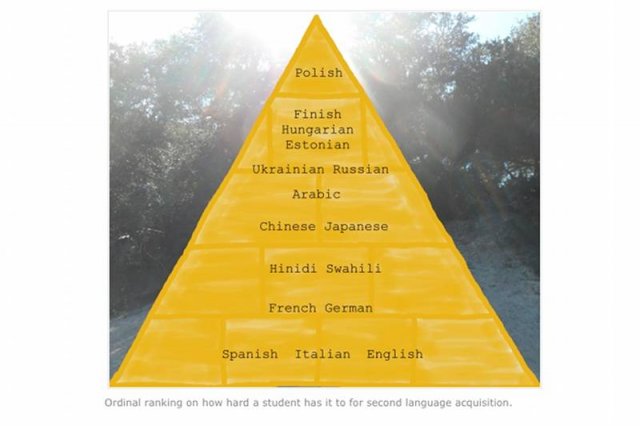On the contrary, because of its varied vocabulary it can be extremely subtle, and it has great expressive power. "No other language can boast such a rich vocabulary..In addition, the richness of the English vocabulary continues to be enhanced as words acquire new shades of meaning as the language is used in novel situations. The expressive power of English is also enhanced by its great adaptability, as words, roots, affixes and prepositions can be easily combined to make new words. This makes it a very productive language and well suited to be applied to new concepts and in new situations. It is a powerful tool in the hands of writers."
As I showed before, fusional languages are much more adaptable.
Writer can create new words, but it does not mean, that some one
can understand thise words or they will be used.
I would go further and say that it's an incomparable language in the hands of writers. Of course, you have barely educated people, even native speakers, on whom most of this richness is lost.
:grin:
just a small example...all these words have to do with the refraction of light. There are many, many more. The meanings are all different. You can't substitute one for another: dazzle, shimmer, glimmer, glint, glisten, sparkle, twinkle, spark, flicker, flash, glow. Just because a foreign speaker doesn't know the precise meaning of these words doesn't mean there isn't a precise meaning.
In other languages are the same. In one language some things have more synonimous in another less...
For examle, in ancient greek you had minimum four words which are translate as love,
in polish minimum three (which has totaly different menaning as this in greek), in english
two (love and like), but in russian this two are translated as only one.
So in russian it is very difficult to say: I like you...

So, which one of thise languages in that particular case
are more developed, and which are more primitive?
The answer is obvious,
As to your second point, there is no up side to being passive and accepting in the face of life's challenges, either for individuals or nations. Saying it's God's Will and leaving it at that is counter-productive. Wallowing in depression is self-defeating. Believing that there is a solution and you can find it is how human society progresses. Do I like everything about modern culture as it is developing? No, I don't. I'm actually quite conservative on social matters, but most decidedly not in terms of science and technology. If some groups or countries want to retreat from the modern world, hugging to themselves ancient modes of living, of being, of thinking, refusing to learn the international language, then that's their choice. I think that in part that's what's going on in the Near East. I suppose on one level it just leaves more of the prosperity for others. It's not what I want for me or mine.

etrified:
What all of this has to do with the question: which language is better, or wich language is the best for Europe?
Ed. For what it's worth, I love my native language. I read it and hear it spoken (through the computer, and television, and radio) every day. I also still try to read French authors in French. That doesn't change anything that I said.
But that what you like, doesn't change the fact, that some languages are better than others.
If you know this three languages, than I guess, that italian and french are more primitive than
english, becasue you fighting for betterness of english. But on my knoladge it doesn't should be
like that... but if know them and are telling us such a thing...




